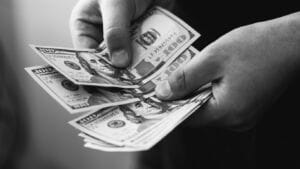Whether you are a business leader, an entrepreneur, a student, a person at the beginning of your career, or someone preparing to retire–no matter what position you hold and what stage of life you are currently located in, personal development is never not a relevant topic. At any age and term of life, there is always more personal progress to be made in order to better yourself and the way you interact with the world around you. This fact is widely understood based on the sheer amount of self-development books available. How do you choose which ones to spend your time on? Here is a list of personal development books recommended by leaders in their industry to help you overcome your mental blocks and become a better leader.
The 7 Habits of Highly Effective People
I cannot stop recommending the book The 7 Habits of Highly Effective People by Stephen R. Covey. It’s a book that was initially recommended to me by multiple people when I was first starting in the industry and has certainly helped shape my mindset on how to interact with other people. The 7 Habits teaches you about seven life-shaping methods you can follow to improve yourself; they are techniques that also apply to those around you, so that you can recognize traits in others. The book focuses on you, the reader, and how you can be a better leader, but it also discusses advice for entering a world made up of other individuals. I’ve found the advice inside to be helpful and truly life changing.
Remon Aziz, Chief Operating Officer Advantage Rent A Car
Failing Forward
Failing Forward by John C. Maxwell is a critical read because it completely shifts your attitude on failure. While many of us, particularly those raised in past generations, viewed failure as something hindering, embarrassing, and deterring, Maxwell shifts the narrative and explains why failure is essential to success. It makes sense then, since failing is inevitable, to view each failure as a step in the right direction (a step forward). This positive shift in mentality has helped me in my personal and professional life, as I now view every opportunity and every outcome as a learning experience that will lead to my ultimate success as a person.
Isaiah Henry, CEO Seabreeze Management
Build a Brand in 30 Days
Build a Brand in 30 Days is written by Simon Middleton, a successful self-starter and so-called “brand strategy guru” who outlines 30 actionable steps you can take to develop your brand from an idea to a fully-formed plan. The 30 steps are meant to be followed over 30 days. I love the expertise behind the author and the way he shares what has worked for him to bring him into brand success. I appreciated the structure of the book as a hands-on guide that allows you to work through your brand concept as you read. The book does the work of a whole program or workshop, but independently.
Cody Candee, Founder and CEO Bounce
The Power of Positive Thinking
The Power of Positive Thinking by Normal Vincent Peale is not a new book but its advice still holds true today. It isn’t a conventional leadership book as it addresses personal growth much more than professional growth, however, when reading you can quickly see how much the two overlap. I love any books that lead me into a deeper understanding of myself and what actions I need to take to achieve my goals, which is exactly what is outlined in Peale’s self-help guide. If you want to improve your leadership abilities by first focusing on changing yourself, I recommend you delve in.
Yuvi Alpert, Founder and CEO Noemie
How to Win Friends and Motivate People
How to Win Friends and Motivate People by Dale Carnegie has been circulating since the 1930s when it targeted people working door-to-door in sales, and instructed them on how to form connections with the people they interacted with in order to drive sales. A large premise of the book, therefore, is how to quite accurately “win friends” in a way that establishes common ground and easy flow of communication with others. Due to its tips and tricks on how to professionally and effectively communicate with those in your realm of work, it is a beneficial book for anyone who interacts at work–which is everyone! But it can also help your non-professional relationships. Understanding people and motivational tactics can help with personal development in every area of life.
Candace Alarie, Founder Soak Bath Co
The Now Habit
I recommend Neil Fiore’s The Now Habit for any person who easily gets sidetracked or procrastinates. We often procrastinate because we have a sense of fear surrounding starting something, or because we doubt we will be able to complete it to our satisfaction. By getting to the root of why people delay important matters, you can then begin to work around these mental blocks. Fiore actually views procrastination through a scientific lens, explaining the reasons why people procrastinate and the science-backed exercises that can help people push around their mental blocks. Especially today, with all the distractions of modern technology, this book is beneficial for anyone who needs to gain a little focus mentality.
Jessica Herrin, Founder Stella and Dot
Emotional Intelligence
If you have only recently heard the term “emotional intelligence” that’s because it is a relatively new definition, but in 2021 it’s everywhere and carries a lot of weight. Emotional Intelligence by Daniel Coleman is a book I read that taught me a lot about the true definition of the term and how to raise your own level of intelligence. Emotional intelligence refers to a psychological layer of the person that measures how personally developed one is in regards to different areas of their life. Because Coleman is an expert in psychology and neuroscience, he outlines the psychological aspect of emotional intelligence and what five skills you need to work on to achieve a high intelligence. It’s a fantastic read because it is relatable to all aspects of life, from personal to professional and everything in between.
Jason Wong, CEO Building Blocks
Virtual Freedom
I picked up the book Virtual Freedom: How to Work with Virtual Staff to Buy More Time, Become More Productive, and Build Your Dream Business by Chris Ducker during the transition to remote work in 2020 because it seemed highly relevant, but interestingly, the book was first published back in 2014 before remote work was as widespread as it is today. Clearly the methods outlined in the book have impacted every virtual business person ahead of their time, and it certainly taught me a lot about effectively working and leading remotely. What stood out to me is the way the author breaks apart the idea that you need to be independent to be successful–instead, he calls for leaders (or those aspiring) to collaborate and build a solid team around them to contribute to an overall successful business.
Jay Levitt, Founder and CEO Lofta
On Becoming A Leader
I highly recommend Simon Sinek’s On Becoming a Leader as an influential personal development book that helps create better leadership qualities. The full title addresses “How Great Leaders Inspire Everyone to Take Action” because the book explains the stand apart qualities leaders who inspire others share, and they truly do differ from the actions non-leaders take. By following their patterns, you can be taken seriously as a leader too, and according to Sinek, it all comes down to asking the question “why?” How are you going to get others to follow you or your business if they don’t understand “why” they should or “why” it matters? These questions are unlocked in the book. It’s seriously an unmissable read for anyone wanting to improve their leadership skills.
Rym Selmi, Founder MiiRO
Rich Dad, Poor Dad
A book that has been circulating as an excellent financial reference since it was first released in 1997 and is again now receiving positive attention is Rich Dad, Poor Dad by Robert T. Kiyosaki. I read this book when I was younger and just starting my career. The premise of the book is changing your financial outlook in small ways to increase your financial situation. Kiyosaki addresses how wealth is not dependent on salary or what type of position you hold, but rather on how you distribute your wealth and your overall wealth mindset. I recommend this book to everyone who wants to increase their financial literacy, as that is one topic extensively discussed. It truly captures the heart of making good financial decisions to benefit you in the long run.
Jeff Meeks, VP of Sales and Marketing Energy Fit
Flow: The Psychology of Optimal Experience
Mihaly Csikszentmihaly has created a mix between psychology and philosophy in his personal development book Flow: The Psychology of Optimal Experience. He refers to flow as that ideal mental workspace where you are creative and focused and in the zone, but we all know it can be hard to achieve at will. The psychological aspect comes in when discussing how flow can be increased for more productivity. It blends a philosophical stance into the mix by exploring how a consistent flow can positively affect your daily life. Overall, it is definitely a worthwhile read for anyone hoping to be more productive and at their best.
Anthony Puopolo, CMO REX MD
Quiet: The Power of Introverts in a World That Can’t Stop Talking
This one is for all the introverts who maybe feel talked-over at work or in their personal lives. Quiet by Susan Cain speaks directly to introverts in ways they can deeply relate to. For instance, she outlines communal traits introverts share and why those lead to them feeling less capable in leadership positions. She inspires introverts to actually hone their natural personalities and instincts and use them to their advantage. I appreciate this book for the way it speaks to the power that introverts can carry, as many development books address extroverts who are naturally effective face-to-face communicators. Cain reminds the quieter, more self-reflected individuals that they absolutely still possess every skill they need in order to be leaders.
Sheila Chaiban, CEO One Ocean Beauty




